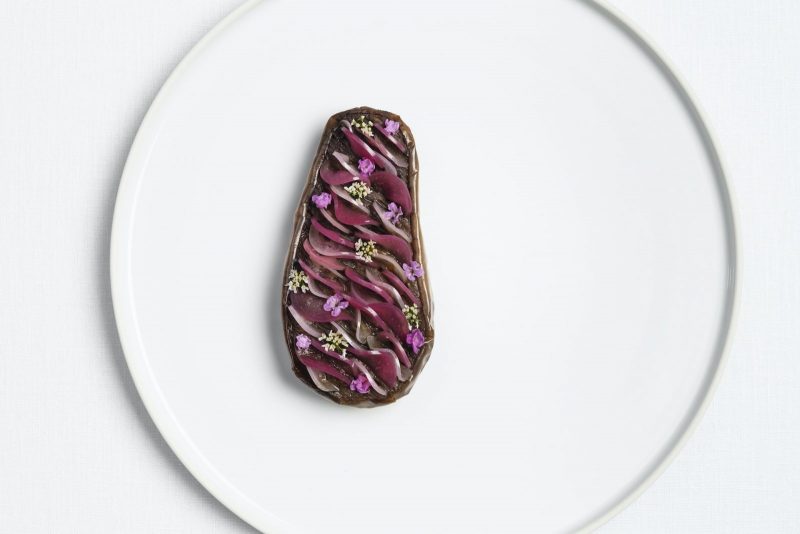Pottery-shard beets and eggplant canoes

Pete Wells is one of the greatest American critics working in any genre, and when he finds a massive rip-off it’s like an early Christmas present. This time, the vegan iteration of the 3-Michelin-star Eleven Madison Park:
In tonight’s performance, the role of the duck will be played by a beet, doing things no root vegetable should be asked to do. Over the course of three days it is roasted and dehydrated before being wrapped in fermented greens and stuffed into a clay pot, as if it were being sent to the underworld with the pharaoh.
The pot is wheeled out to your table, where a server smashes the clay with a ball-peen hammer. The beet is cleaned of pottery shards and transferred to a plate with a red-wine and beet-juice reduction that is oddly pungent in a way that may remind you of Worcestershire sauce.
They used to do a similar beet act at Agern, a New Nordic restaurant in Grand Central Terminal, roasting it inside a crust of salt and vegetable ash. That beet tasted like a beet, but more so. The one at Eleven Madison Park tastes like Lemon Pledge and smells like a burning joint.
[…]
Time and again, delicate flavors are hijacked by some harsh, unseen ingredient. Marinated wedges of heirloom tomatoes have a pumped-up, distorted flavor, like tomatoes run through a wah-wah pedal. Rice porridge under crisp, pale-green stems of celtuce has a tangy, sharp undertone that another restaurant might get from a grating of aged pecorino. A tartare of minced cucumbers, honeydew melon and smoked daikon is suffused with an acrid intensity.
The servers offer few explanations for the doctored flavors, and no warnings, either. The ingredients look normal until you take a bite and realize you’ve entered the plant kingdom’s uncanny valley.
What makes Wells a great as opposed to good critic is that the killer one-liners are in service of a larger point, most commonly genuine anger at customers being ripped off. (Contrary to some dishonest characterizations, you can see that Wells’s famous review of Guy’s American Kitchen contains no negative comments about his TV show or his fans or populist American classics — the criticism is directed entirely at the dreadfully inferior versions of the food his show justly celebrates being served to unwitting fans.) In this case, the vegan branding seems an awful lot like cynical profit-taking, a way to justify the same incredibly high tariff for much less expensive ingredients, rather than any kind of principled commitment:
And while Mr. Humm rarely talks about the bottom line, it’s obvious what happens when you keep charging $335 for dinner while getting rid of some of the most expensive items on your shopping list, like caviar, lobster and foie gras. (It’s the same thing that happened in 2016, when the restaurant essentially halved the number of courses in the tasting without changing the base price.
Eleven Madison Park still buys meat, though. Until the year ends, the menu offered to customers who book a private dining room includes an optional beef dish, roasted tenderloin with fermented peppers and black lime. It’s some kind of metaphor for Manhattan, where there’s always a higher level of luxury, a secret room where the rich eat roasted tenderloin while everybody else gets an eggplant canoe.
The discipline it takes to build up to that incredible kicker shows remarkable craft.


